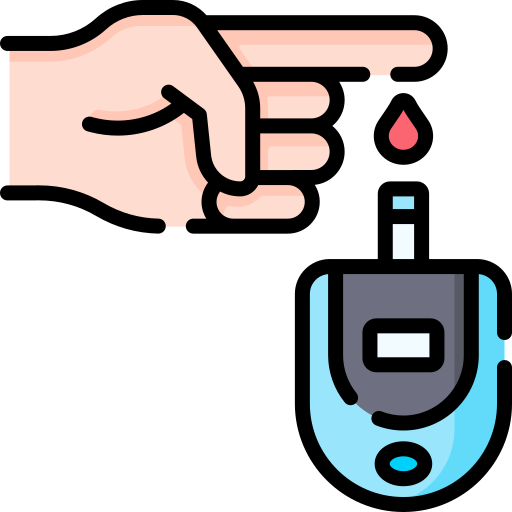
What is Apple Cider Vinegar?
Apple cider vinegar, sometimes abbreviated as ACV, is a fermented juice from apples that's been all the rage for quite a while now. Some people absolutely swear by it, and others find it useless. So let's take a look into what this vinegar can do, and how to properly utilize it.

Forms of Apple Cider Vinegar
When buying apple cider vinegar, you're likely to encounter 2 types. First is standard filtered ACV, which is cheaper and clearer in color. The second type is raw apple cider vinegar with "the mother", which is cloudier and more expensive.

What is the Mother?
Raw, unfiltered apple cider vinegar contains what's known as "the mother", which is the good bacteria from the fermentation process. Most people attribute the health benefits of apple cider vinegar to the mother, as the healthy bacteria contains the probiotics that are beneficial to your gut microbiome.

The same things that make fermented foods healthy, like sauerkraut and Greek yogurt, are also what apple cider vinegar good for you. As problems with the gut are often the root cause of many chronic issues, probiotics that strengthen your good gut bacteria are great additions to your everyday diet.

Besides the mother, the acetic acid (aka the vinegar itself) is also thought to be beneficial. Acedic acid is not unique to apple cider vinegar though, as it also occurs in white, balsamic, and rice vinegars.

Health Benefits of Apple Cider Vinegar
People have been using apple cider vinegar as a home remedy long before the Internet. It's a simple herbal remedy that may help you both in the short term and the long term.

Blood Sugar Regulation
Most notably, apple cider vinegar has been shown to help regular your blood sugar, keeping your glucose levels more stable. This means that it can be an effective remedy when consuming high glycemic foods.

Small studies have shown that consuming apple cider vinegar before a meal causes less of a spike in glucose as compared to the control group eating the same food. This means that apple cider vinegar could be an effective tool in preventing and treating diabetes in some patients. Additionally small improvements in A1C levels were found after 8-12 weeks.

Weight Loss
As apple cider vinegar can be used for regulating your blood sugar, this means it can also be a helpful tool in losing weight. Whereas spikes and crashes in blood sugar lead to increased hunger, steady waves of glucose prevent excess insulin secretion, leading to longer feelings of fullness.

As you'll presumably be less hungry with more stable glucose levels, you'll eat less and perhaps lose weight if this is a goal for you. At the very least, adding a glass of water to your day is a good idea, whether there's apple cider vinegar in it or not.
.png)
Cholesterol Management
The same studies that have reported blood sugar regulation and weight loss due to the use of apple cider vinegar have also shown improvements to blood cholesterol levels. Notably, there was a statistically significant increase in HDL ("good" cholesterol), coupled with a decrease in LDL ("bad" cholesterol) and triglycerides.

Acid Reflux and Digestion Improvement
Typically, when people have acid reflux and heartburn, they take antacid medication, which is exactly what it says. Tums, for example, are an anti-acid, aka a base, to counter the acidic stomach environment.

However, possibly counterintuitively, studies have started to come out revealing that you actually want to increase the acidity of your stomach in these cases, not decrease it. If that's the case, then the antacid is most likely just treating the symptom short term and not fixing any problem with your digestion and gut microbiome.
.png)
Many people swear by apple cider vinegar as a home remedy for easing acid reflux, promoting healthy digestion, and treating symptoms of GERD (Gastroesophaeal Reflux Disease). The theory is that consuming acid promotes the production of stomach acid, leading to a healthier gut. Apple cider vinegar can also be a good remedy for relieving bloating.

Other Possible Benefits

How to Consume Apple Cider Vinegar
As apple cider vinegar is acidic (duh), it's recommended to dilute it in water. You can add 1 tbsp (15 g) to a 12 oz (360 g) glass of water, stir it, and drink it about 30 minutes prior to a meal.

You can also add apple cider vinegar directly into your food. ACV can easily be used in salad dressings, marinades, sauces, and soups. I tend to drizzle a little on my leftovers for both nutrition and flavor.

The next time you think about adding some lemon juice or hot sauce to your dinner, consider a splash of raw apple cider vinegar instead. It will really brighten up your dish, and allow you to still consume ACV if drinking a glass of apple cider vinegar water sounds gross to you.

Are There Any Risks?
Consuming too much apple cider vinegar can damage your teeth, but really only if you consume it directly without diluting it. Mainly, consuming any vinegar directly without diluting it can damage tooth enamel. Diluting it in a glass of water should be okay; just don't take shots of vinegar. Using a straw could also help with protecting your teeth.

It can also irritate your esophagus and cause nausea if consumed in too high amounts. It's always best to dilute apple cider vinegar, and not consume on an empty stomach.

Large amounts of apple cider vinegar can also decrease your body's potassium levels, so if you're someone with chronically low potassium then perhaps you should steer away from apple cider vinegar. Or add a pinch of any sort of "lite-salt" to your vinegar water, which is just KCl (potassium chloride) instead of NaCl (sodium chloride, aka salt) to make up for any lost potassium.

Other Forms of Apple Cider Vinegar
Apple cider vinegar is most commonly sold as a bottled liquid to be used for consumption and cleaning. But if you just can't get enough of the stuff, you can also buy apple cider vinegar supplements, like pills and gummies.

Conclusion
While there isn't strong scientific evidence pointing to apple cider vinegar being a miracle cure, it is evident that it is a cheap and effective solution in some areas. Overall, using apple cider vinegar is generally harmless, so worst case you have a neutral effect.

Sources
Apple cider vinegar, sometimes abbreviated as ACV, is a fermented juice from apples that's been all the rage for quite a while now. Some people absolutely swear by it, and others find it useless. So let's take a look into what this vinegar can do, and how to properly utilize it.

Forms of Apple Cider Vinegar
When buying apple cider vinegar, you're likely to encounter 2 types. First is standard filtered ACV, which is cheaper and clearer in color. The second type is raw apple cider vinegar with "the mother", which is cloudier and more expensive.

What is the Mother?
Raw, unfiltered apple cider vinegar contains what's known as "the mother", which is the good bacteria from the fermentation process. Most people attribute the health benefits of apple cider vinegar to the mother, as the healthy bacteria contains the probiotics that are beneficial to your gut microbiome.

The same things that make fermented foods healthy, like sauerkraut and Greek yogurt, are also what apple cider vinegar good for you. As problems with the gut are often the root cause of many chronic issues, probiotics that strengthen your good gut bacteria are great additions to your everyday diet.

Besides the mother, the acetic acid (aka the vinegar itself) is also thought to be beneficial. Acedic acid is not unique to apple cider vinegar though, as it also occurs in white, balsamic, and rice vinegars.

Health Benefits of Apple Cider Vinegar
People have been using apple cider vinegar as a home remedy long before the Internet. It's a simple herbal remedy that may help you both in the short term and the long term.

Blood Sugar Regulation
Most notably, apple cider vinegar has been shown to help regular your blood sugar, keeping your glucose levels more stable. This means that it can be an effective remedy when consuming high glycemic foods.

Small studies have shown that consuming apple cider vinegar before a meal causes less of a spike in glucose as compared to the control group eating the same food. This means that apple cider vinegar could be an effective tool in preventing and treating diabetes in some patients. Additionally small improvements in A1C levels were found after 8-12 weeks.

Weight Loss
As apple cider vinegar can be used for regulating your blood sugar, this means it can also be a helpful tool in losing weight. Whereas spikes and crashes in blood sugar lead to increased hunger, steady waves of glucose prevent excess insulin secretion, leading to longer feelings of fullness.

As you'll presumably be less hungry with more stable glucose levels, you'll eat less and perhaps lose weight if this is a goal for you. At the very least, adding a glass of water to your day is a good idea, whether there's apple cider vinegar in it or not.
.png)
Cholesterol Management
The same studies that have reported blood sugar regulation and weight loss due to the use of apple cider vinegar have also shown improvements to blood cholesterol levels. Notably, there was a statistically significant increase in HDL ("good" cholesterol), coupled with a decrease in LDL ("bad" cholesterol) and triglycerides.

Acid Reflux and Digestion Improvement
Typically, when people have acid reflux and heartburn, they take antacid medication, which is exactly what it says. Tums, for example, are an anti-acid, aka a base, to counter the acidic stomach environment.

However, possibly counterintuitively, studies have started to come out revealing that you actually want to increase the acidity of your stomach in these cases, not decrease it. If that's the case, then the antacid is most likely just treating the symptom short term and not fixing any problem with your digestion and gut microbiome.
.png)
Many people swear by apple cider vinegar as a home remedy for easing acid reflux, promoting healthy digestion, and treating symptoms of GERD (Gastroesophaeal Reflux Disease). The theory is that consuming acid promotes the production of stomach acid, leading to a healthier gut. Apple cider vinegar can also be a good remedy for relieving bloating.

Other Possible Benefits
- Eczema relief
- Kill bad bacteria
- Improve hair health

How to Consume Apple Cider Vinegar
As apple cider vinegar is acidic (duh), it's recommended to dilute it in water. You can add 1 tbsp (15 g) to a 12 oz (360 g) glass of water, stir it, and drink it about 30 minutes prior to a meal.

You can also add apple cider vinegar directly into your food. ACV can easily be used in salad dressings, marinades, sauces, and soups. I tend to drizzle a little on my leftovers for both nutrition and flavor.

The next time you think about adding some lemon juice or hot sauce to your dinner, consider a splash of raw apple cider vinegar instead. It will really brighten up your dish, and allow you to still consume ACV if drinking a glass of apple cider vinegar water sounds gross to you.

Are There Any Risks?
Consuming too much apple cider vinegar can damage your teeth, but really only if you consume it directly without diluting it. Mainly, consuming any vinegar directly without diluting it can damage tooth enamel. Diluting it in a glass of water should be okay; just don't take shots of vinegar. Using a straw could also help with protecting your teeth.

It can also irritate your esophagus and cause nausea if consumed in too high amounts. It's always best to dilute apple cider vinegar, and not consume on an empty stomach.

Large amounts of apple cider vinegar can also decrease your body's potassium levels, so if you're someone with chronically low potassium then perhaps you should steer away from apple cider vinegar. Or add a pinch of any sort of "lite-salt" to your vinegar water, which is just KCl (potassium chloride) instead of NaCl (sodium chloride, aka salt) to make up for any lost potassium.

Other Forms of Apple Cider Vinegar
Apple cider vinegar is most commonly sold as a bottled liquid to be used for consumption and cleaning. But if you just can't get enough of the stuff, you can also buy apple cider vinegar supplements, like pills and gummies.

Conclusion
While there isn't strong scientific evidence pointing to apple cider vinegar being a miracle cure, it is evident that it is a cheap and effective solution in some areas. Overall, using apple cider vinegar is generally harmless, so worst case you have a neutral effect.

Sources
- FlatIcon
- WebMD: Is Apple Cider Vinegar Good for Health?
- PubMed: The improvement effect of apple cider vinegar as a functional food on anthropometric indices, blood glucose and lipid profile in diabetic patients: a randomized controlled clinical trial
- Medical News Today: Does apple cider vinegar help people with diabetes?
- Apple cider vinegar benefits: with and without 'the mother'